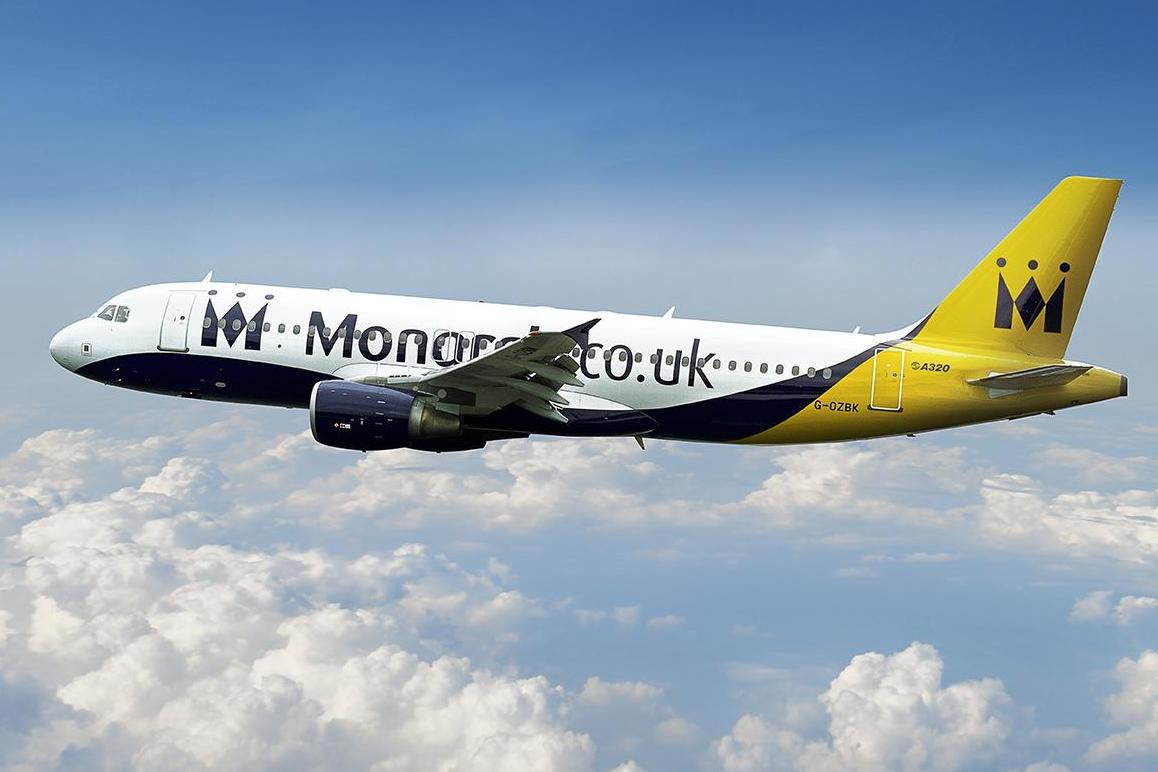Air passengers set to pay levy of up to 50p in case airlines go bust
Airline Insolvency Review urges rescue fund to bring travellers home, adding up to 50p to the fare

Airline passengers face another extra fee on their tickets: a levy of up to 50p, for a fund to repatriate travellers if their carrier goes bust.
The move has been welcomed by travel agents and tour operators, but criticised by airlines.
The Airline Insolvency Review was set up by the Department for Transport (DfT) after the collapse of Monarch in October 2017 to look at ways of protecting passengers in future.
The review, chaired by Peter Bucks, recommends a “Flight Protection Scheme” to foot the bill in future collapses.
All airlines flying to the UK, British or otherwise, would be required to put in place financial protection that would pay for travellers to be brought home were they to go out of business. Every passenger buying a plane ticket in the UK would pay a levy.
Airlines that went bust
Show all 12The fund would cover only people who booked a return ticket from the UK whose airline fails while they are away.
Passengers who had yet to travel would not be covered, and would be expected to claim the value of the ticket back from the credit-card provider, travel insurer or Atol cover.
In the Monarch failure, 85,000 travellers were flown back to the UK, mainly from Mediterranean airports, at a cost to the taxpayer of £40.5m – or £476 for every passenger.
Peter Bucks said: “We know passengers expect to be protected from being stranded overseas if their airline should collapse, but in practice, each year many people fly without any such protection.
“Although airline insolvencies are relatively rare, as we have seen in recent months they do happen – and at times have required Government to step in to repatriate passengers at great cost to the taxpayer.”
The rescue operation would have been less costly if Monarch planes and crews had been kept on to operate flights.
When a UK carrier collapses, the staff lose their jobs and aircraft are grounded or returned to lessors. This is in contrast to Germany, where the failing Air Berlin was kept aloft at the government’s expense until the end of the summer season to ensure holidaymakers were repatriated.
The review envisages a “special administration regime” to allow an insolvent airline to continue to operate its fleet to bring home passengers who would otherwise be stranded.
In 2018, a series of small airlines failed, including Cobalt Air, Primera and VLM. A total of 12,000 UK-originating passengers were stranded abroad.
The report says that the historic annual average over the past decade has been 19,500. In future around 14,000 passengers are predicted to need repatriation each year.
The transport secretary, Chris Grayling, said: “We will now consider the range of options put forward by the review, and will work to swiftly introduce the reforms needed to secure the right balance between strong consumer protection and the interests of taxpayers.”
Abta, representing travel agents and tour operators, welcomed the report. John de Vial, the association’s director of financial protection, said: “It is good to see that the Review has recognised that there is a gap in consumer protection when an airline goes out of business.”
But financially strong airlines, which have an extremely small risk of failing, are critical of the extra costs and complexity involved.
British Airways’ parent company, IAG, said: “Airline passengers should not be charged a levy to bail out other carriers when they go bust.”
Dale Keller, representing airlines flying to the UK, said: “The real costs of collecting and administering the proposed 50p per passenger are likely to be significantly greater.
“The Airline Insolvency Report does not go into the complexity of how such a levy should be collected only on UK originating return journeys, or how the fund would be administered.”
The review will be considered as part of the government's strategy for aviation to 2050.
Subscribe to Independent Premium to bookmark this article
Want to bookmark your favourite articles and stories to read or reference later? Start your Independent Premium subscription today.





Join our commenting forum
Join thought-provoking conversations, follow other Independent readers and see their replies
Comments